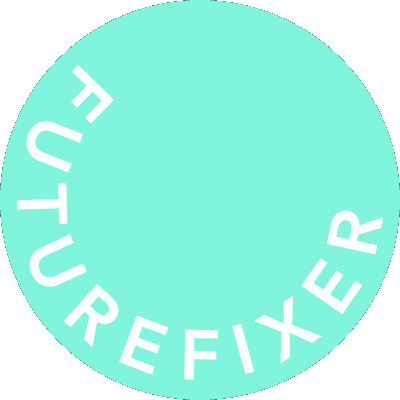
Fashion can put the Earth first. Two academic activists prove how – in a bold new plan.
The clothes we wear allow us to express our identity, individuality and creativity, and fashion often plays with fantasy to stunning effect. A darker fantasy lurks within the fashion industry, however: the fantasy of never-ending growth on a planet upon whose resources it depends.
The quest for truly sustainable garments, created in a caring labour system, and using materials that do not deplete or poison the planet, has become urgent for an increasing number of fashion-lovers. And while many designers, materials innovators and craftspeople strive to create a fairer system, too much of the industry globally is far behind these demands.
Two radical academics have an alternative to offer us. Professors Kate Fletcher (Sustainability, Design, Fashion at the Centre for Sustainable Fashion, London) and former fashion designer Mathilda Tham (Design + Change at Linnaeus University, Sweden) have over 50 years experience of fashion research between them – and they are clear that the model of economic growth is bust.
“If the sector is serious about climate change, biodiversity loss and the interplaying social and economic justice – like many who work within it claim – then systemic work is essential.” – Earth Logic
Together, these professors, authors and activists have explored super fast and slow fashion, co-founded the Union of Concerned Researchers in Fashion and now they want to change the way we think about – and act for – fashion and nature, people and place. Welcome instead, Earth Logic – their invitation to the sector, and beyond, to adopt practices, develop ideas and embrace actions that urgently prioritise how we sustain life for all species on our planet. It’s logical, really.

Meet the FutureFixers: ‘Kathilda’ on getting fashion out of its bubble, the importance of language & our transition to a landscape of less

Get ready for a fashion mic drop
Mathilda: I’m excited about the transformative power of fashion. When you are wearing something you can feel more present – and more ‘you’ than ever before. That moment, its precious and fragile link to time and space, really excites me. And it is possible to do without much material and without exploitation.
Kate: Clothes are an incredible way into understanding a new relationship with nature. No other product that I can dream of gives us this intense portal to a new relationship with the natural world. I live in a cold, wild and wet place in northern England, where I have learned so much about clothes and fashion, and about what it enables me to be and do. It’s the limit to what the fashion system could and should be, a limit shaped and marked by the land. It’s a revelation to me, as I’m from the city and didn’t live outside it for 33 years.
Mathilda: Despite us having the same fast fashion chains everywhere, dress is different in different places. We could build on that by configuring local fashion governance between citizens who make things and people who decide things and those who can rock up with materials and resources.

Kate grew up in a left-wing Liverpool
Kate: I love the capabilities you express when you are engaging with fashion. It’s full of agency. As a teenager, when I began to express my own power in the world, it was all through clothes and what I could make myself.
Mathilda: People modify their clothes all the time. I’m currently rooted in Haringey, in North London. It’s super exciting in terms of use and seeing how people dress every day. I also live in the south of Sweden and been really struck by how there is more confidence there in dress than in Stockholm, my hometown, which is much more homogenous.
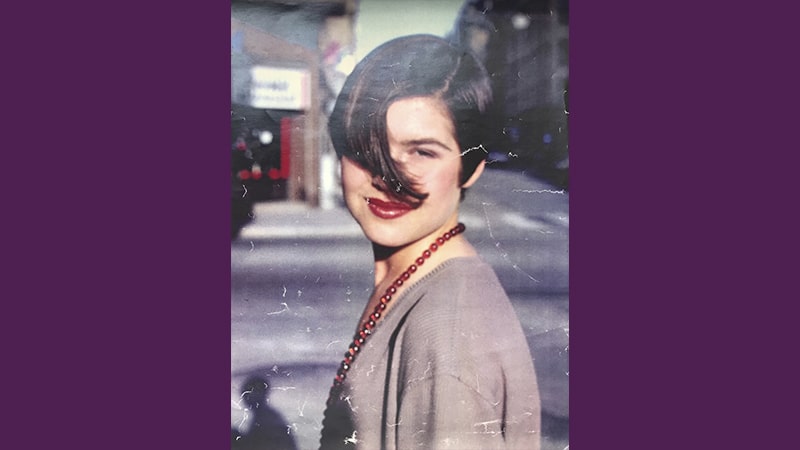
Mathilda, studying at Beckmans College of Design, Stockholm| Pic: Martin Alm, 1992
Kate: We are interested in making knowledge more alive and applicable to the real world. That’s what we mean by an activist knowledge ecology: it is a shorthand for the process of setting knowledge in motion. Frequently knowledge and action are siloed and not connected.
Mathilda: Fashion is very good at keeping itself in a bubble: we are very good at cultivating ways of disconnecting our values from our actions and not engaging in the world.
Kate: Nothing is ever finished and we never know everything. Not only do we come up with new ideas in real time, we are constantly testing and refining them as we go. With Covid-19, we are watching in real time an activist knowledge ecology develop, with the development of new tests, trials, vaccine development.
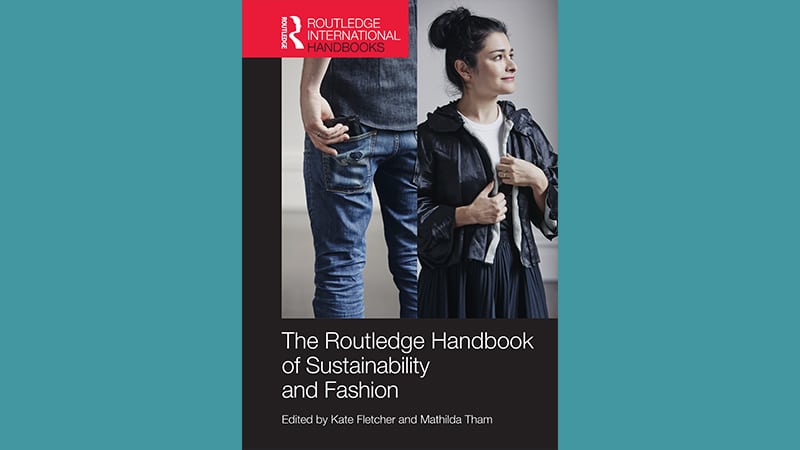
The Routledge Handbook, co-edited by Kate and Mathilda, this prestige reference work is challenging, multi-layered, revealing & honest
Mathilda: The Union of Concerned Researchers in Fashion was co-founded in 2018 with Lynda Grose and Timo Rissanen, out of a growing frustration from going to conferences and sharing papers but not ‘doing’.
Kate: The Union works absolutely as a collective – everybody is collaboratively figuring out what it is, what it means to work in this way. It feels really alive. We can’t just have one lone individual or figurehead to lead this, it’s everyone.
Mathilda: We wrote a manifesto and issued invitations – and were overwhelmed that so many people wanted to join the Union, including lots who are not researchers.
Kate: The presence of the Union has changed how people are engaging with the issues. By submitting questions to conferences, or writing addendums to reports that have been released, it’s having an influence over the conversations that are going on.
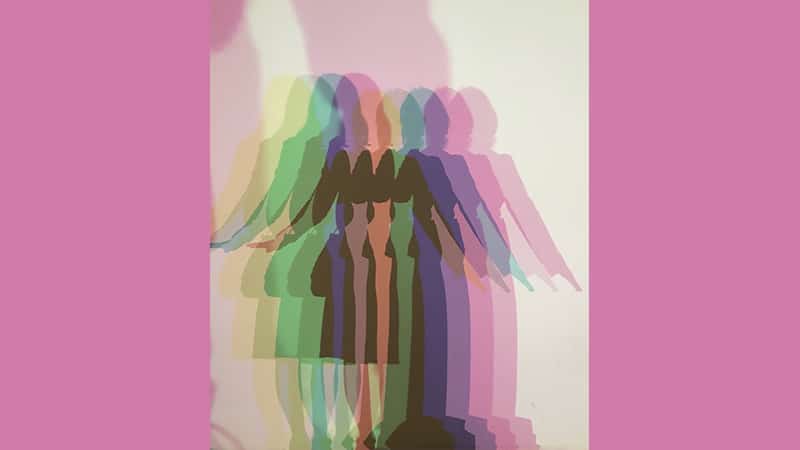
Kate & Mathilda at the Olafur Eliasson exhibition, Tate London
Mathilda: The biggest delusion of the fashion sector at the moment is that it can grow – or that it can be fixed. Because fashion has been perceived very low on the scale of intellectual knowledge production, it’s as if it couldn’t be that bad because people don’t value it that much.
Mathilda: In the face of resistance, fashion companies become more dogged. They want to continue earning the huge amounts of money that they have been doing. When Karl-Johan Persson (the CEO of H&M) talks about the dangers of moving away from fast fashion for socially vulnerable communities, that’s just a real example of the delusion of the industry. In fact, many of those communities will be the first to suffer, or are already suffering the effects of climate change. Their lives and livelihoods are at risk
Kate: Our loss of the sense of value of fashion is in lockstep with the rise of consumerism. If we take a long view historically, you see a shift from value being placed on the material and craft value towards brand and image value almost exclusively. As this shift took place, less and less value was given to the material components of fashion and the clothes themselves are seen as dispensable and easily substitutable one for the other.
Kate: The Covid-19 pandemic is the first moment that consumerism has ever been arrested. It’s going to be so interesting to see what shakes down in this process and whether people just try to make up for lost time (not just in fashion) or whether we find a release and are freed up in other ways.

Illustration: Danai Tsouloufa, courtesy of the Fashion Ecologies project
Kate: This moment is a perfect opportunity to think about use – see what you have in your wardrobe or fix something. It’s not just practical skills that are important, but also ideas: what can I do with the stuff that I already have?
Kate: Use – and the craft of usership – is a really important thing to talk about. Paying as much attention to using things as to creating or buying them can liberate us from an obsessive engagement with consumer society. To use a garment again and again requires very few additional resources. It is a way to disentangle fashion from the increasing consumption of goods and materials.
Mathilda: Many designers feel wing-clipped by the current fashion system. The expectations we give fashion students is that they will spend time designing, but when they start out in industry they have very little time to design – some of them barely even get to touch fabric or play with colour and be very creative.
Kate: The design of the fashion system is defunct. We felt that if we could offer a leapfrog moment rather than trying to tweak existing systems, then we could offer multiple opportunities for curious engagement and for setting knowledge in motion.
Mathilda: Designing less can mean… spending more time with each piece and designing in a more thorough, thoughtful and creative way. That is something that most, if not all, designers would welcome.
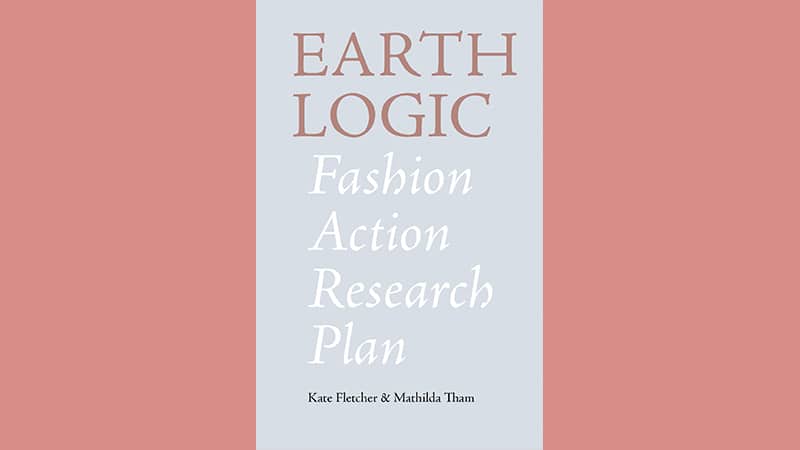
Free download: Earth Logic is a plan which puts Earth first, before profit, before everything
Kate: Earth Logic is only a beginning. We are offering some advanced starting points from which others can begin to make this work without having to go through all the pain and trauma of trying to iteratively and incrementally improve an existing system that is totally broken.
Mathilda: If everybody did less that would change so much – and maybe it’s the stuff that is easiest to get your head round. We thought people would be reluctant to engage with the idea of less but that hasn’t really happened.
Kate: So much of what goes on is an attempt to prop up business as usual and the existing system, just a bit greener – but here we have a framework and a set of values to guide us and an opportunity, a collaboration, a new network to move forward into ground that’s not been charted.
Mathilda: If we invite different voices into the fashion conversation, that will radically transform how we talk. Each organisation, group of friends or individuals can start following people they don’t normally follow, and strike up conversations with people they don’t talk with – there are endless possibilities to grow your perspective by reaching out.
Kate: All that we try to unfold within Earth Logic describes a new way of relating, a new sense of interconnectedness – everything we do is linked together, and we have a profound responsibility towards other species, to humans and to the earth on which we live.
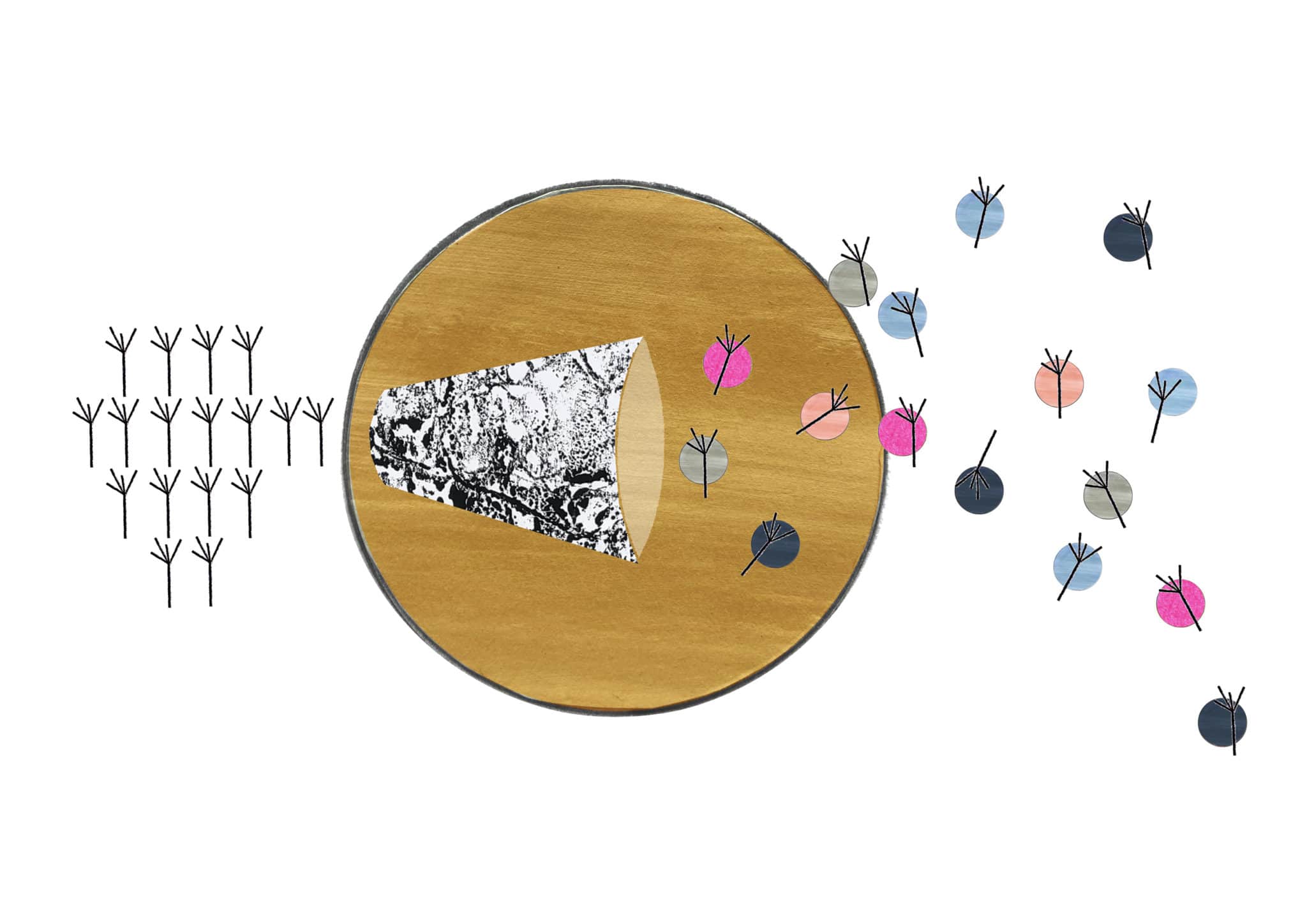
Creating a fashion language creates agency | Illustration: Katelyn Toth-Fejel & Anna Fitzpatrick
Mathilda: Language matters because what we say is also entangled with what we do and how we see the world. If we changed the word ‘consumer’ to the word ‘gardener’ or ‘adoptive parent’, that radically transforms our relationship.
Kate: Care is relational – it’s about what happens between things. It’s been a hot topic in academic discourse for the last ten years or so – it’s motivated people, and people have been drawn to it as an idea. Within a fashion context care can be the transformative centre: it changes fundamentally what is seen as important.
Mathilda: If we use the word ‘care’ instead of ‘sustainability’ we decentralise and democratise it – it’s something we can all do, whereas sustainability sounds like a specialist field of knowledge.
Mathilda: There is a huge opportunity for the media to help create worlds that we want to be in: by talking about hope in a real way, by having a consistent ethical agenda, by talking about practices instead of brands. We need long term stories and to give voice to lots of different people and species, as well as using a wealth of different languages (not just verbal but also visual, sounds, smells).

Design and Nature is a collaboration between 30 authors and edited by Kate, Mathilda and Louise St. Pierre about a dialogue between nature and design
Kate: Working together is an extraordinarily exciting, warm and affirming thing. The Earth Logic work emerged from the space between us: this whole thing began to grow and transform both our understanding of what we were trying to say ourselves but also our engagement with the other person.
Mathilda: You can’t be holistic on your own. When dealing with complexity like sustainability – with social, cultural, financial and ecological systems dancing together – I need to work with Kate and many others. I need to realise the many limits to what I can understand. I will never have the full picture or come up with the full solution on my own. But together, if we are brave, and rely on other people and come up with ideas with others, then perhaps we have a chance.
Kate: Earth Logic is an invitation for others to link arms with us and to move forward together on a journey into new territory. The Spanish poet Antonio Machado said: “There is no path, paths are made by walking” – and it’s only by the act of us collectively seeking out and making an attempt to move through this new ground that we can lead others, and that is what we need to do.
Mathilda: My FuturePower would be… to be able to genuinely turn myself to caring, learning and creative collaboration with all co-species.
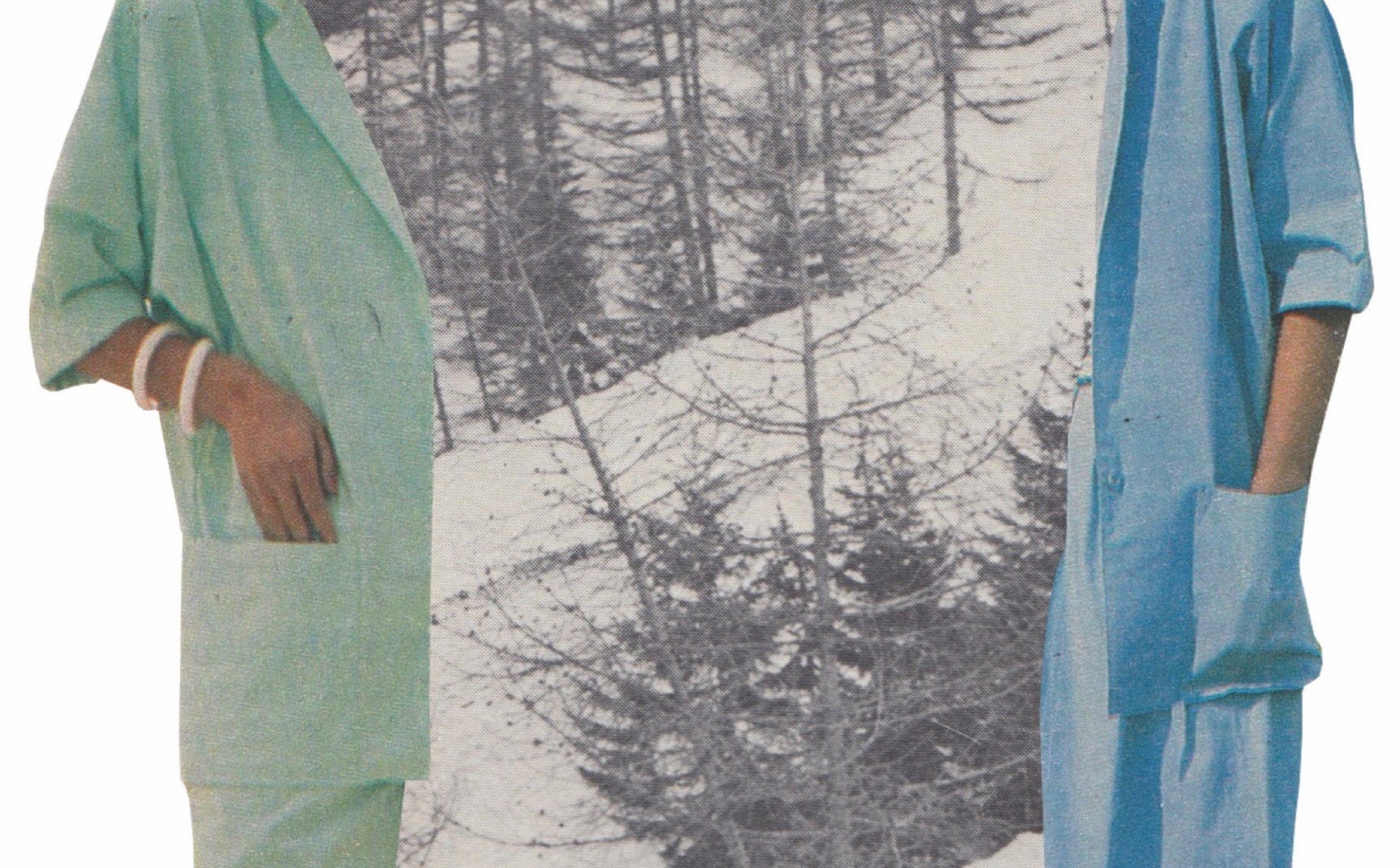
Fashion and nature are connected | Illustration: Danai Tsouloufa, courtesy of Kate Fletcher
Do you know someone helping to rethink our relationship with fashion? Submit a project to FashionFutures and we’ll put them in the spotlight. Kate Fletcher & Mathilda Tham were talking to Cathy Runciman, co-founder of Atlas of the Future. Download Earth Logic here.

